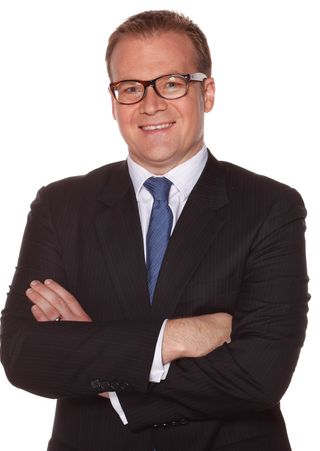ABC The Drum
Hillary Clinton has joined the race for the US presidency again. But the assumption she will snap up the top job this time might just prove her greatest obstacle, writes
So Hillary Clinton is off and running for the presidency of the United States… again.
But this time, Clinton insiders hope, it will be different. Eight years ago when Clinton last set her sights on the White House she also began the race as the presumptive Democratic nominee in an election that after the Bush years was favourable to that party.
Clinton's 2008 campaign didn't work out so well, of course. She appeared distant and aloof from voters, her campaign was arrogant and dysfunctional, and they didn't see the danger posed by the comparatively inexperienced Barack Obama until it was way too late.
This time, they hope, will be different. And besides, a candidate like Obama doesn't come along every day, and a look around the potential field of rivals for the 2016 Democratic presidential nomination says there is no Obama 2.0 waiting in the wings.
Yes, this time will be different.
Or will it?
History says early frontrunners for the presidency can be very vulnerable, particularly on the Democratic side of politics. Ever since the nominating contest was taken out of the smoke-filled back rooms of party bosses in the early 1970s, the favourites have had a pretty patchy track record.
Heading into the 1972 presidential campaign, Senator Edmund Muskie of Maine was at almost unbackable odds to be the Democrats standard-bearer against incumbent Republican president Richard Nixon.
Tricky Dick was looking beatable as the war in Vietnam dragged on, the streets of America's big cities roiled with racial tension and crime.
Ed Muskie had performed strongly as the Democrat's vice-presidential nominee on a ticket with Hubert Humphrey that only narrowly lost to Nixon in 1968. Now it was "Big Ed's" turn.
But another Senator, George McGovern of South Dakota, had different ideas. It was McGovern who had lead the push to reform the nominating contest after the 1968 campaign, which had been marred by the assassination of one candidate; Bobby Kennedy, and the nomination of Humphrey, who was out of step with Democrats who opposed the war and didn't stand in a single primary.
McGovern helped design the new system of primaries and caucuses that would nominate the majority of delegates who would pick the candidate in 1972, and he set out to create an upset. Muskie never saw him coming, just as Hillary underestimated Obama in 2008.
Muskie actually won the first vote of 1972 in Iowa, but he didn't win by nearly as much as his campaign and, even more importantly, the media expected. All of the attention was focused on the insurgent grassroots campaign of McGovern, who like Obama 36 years later, mobilised an army of college kids and ordinary folks who opposed a war that showed no signs of ending.
Unlike Obama, McGovern failed to turn the passion of his supporters into an effective national campaign and lost in the general election against Nixon that November.
The lesson from 1972 was that being the establishment favourite meant less, and that now you had to have a strong ground game, you had to attend small events in restaurants and coffee shops in Iowa and New Hampshire, and you had to manage the expectations of the media who was always on the lookout for a "game changer".
Former Georgia governor Jimmy Carter perfected the McGovern playbook in 1976, riding his bicycle across all 99 counties of Iowa in a masterful example of "retail politics". Carter went all the way to the White House.
But in 2008, there was no way Hillary Clinton was getting anywhere near a bicycle, her ride was a black SUV with dark tinted windows. Unlike most other candidates, as the former first lady of the United States she had secret service protection with her 24/7. While no doubt very wise as a security measure, it also had the effect of keeping both ordinary voters and the media at a distance, and they didn't like it.
Hillary Clinton's name recognition and early popularity also tended to mean she didn't hold events for a few dozens potential supporters in small town diners, instead holding rallies in large school halls and gymnasiums packing in hundreds or thousands of people.
While a crowded gym may make a candidate look popular, it doesn't allow them the kind of close one-on-one contact that voters in those retail politics states like Iowa and New Hampshire expect. On caucus night in Iowa in January 2008 she came third behind Barack Obama and Senator John Edwards — her campaign never fully recovered from the stunning setback.
If the 2016 Hillary campaign knows their history they will try to scale things back, lower expectations and do the kind of groundwork any candidate needs to do to build an effective campaign. They may even buy her a bike.
But ironically, the lack of an Obama-like challenger in the primaries is going to make it harder to lower the expectation she is likely to become not just the Democratic nominee, but probably the next president of the United States.
The assumption Hillary Clinton will win is her greatest rival as her campaign gets underway. Meanwhile, the next Obama may be waiting for her on the Republican side.
This article was originally published at ABC The Drum





